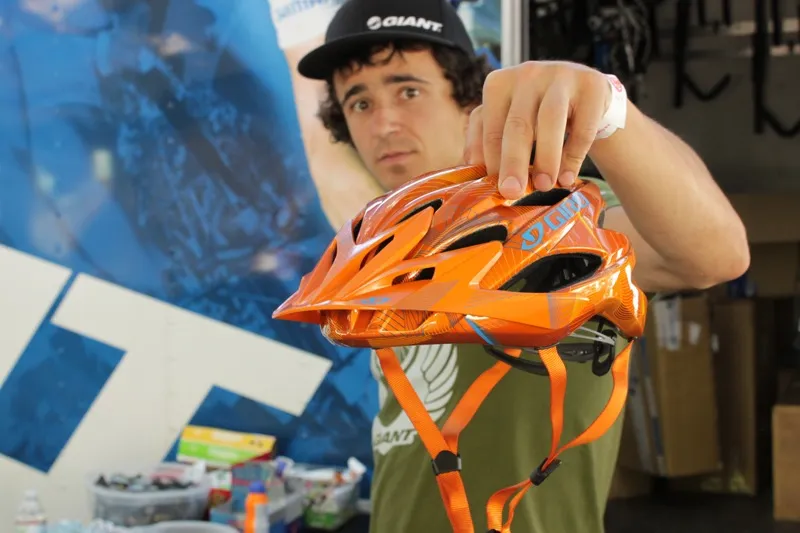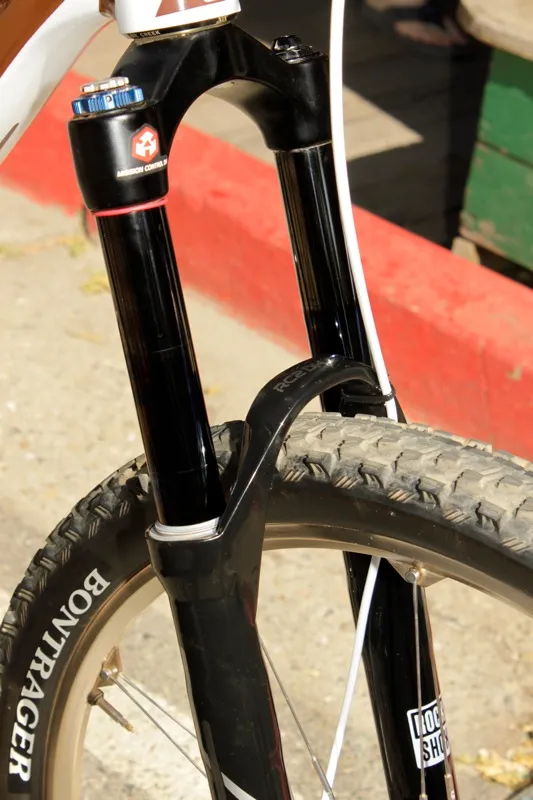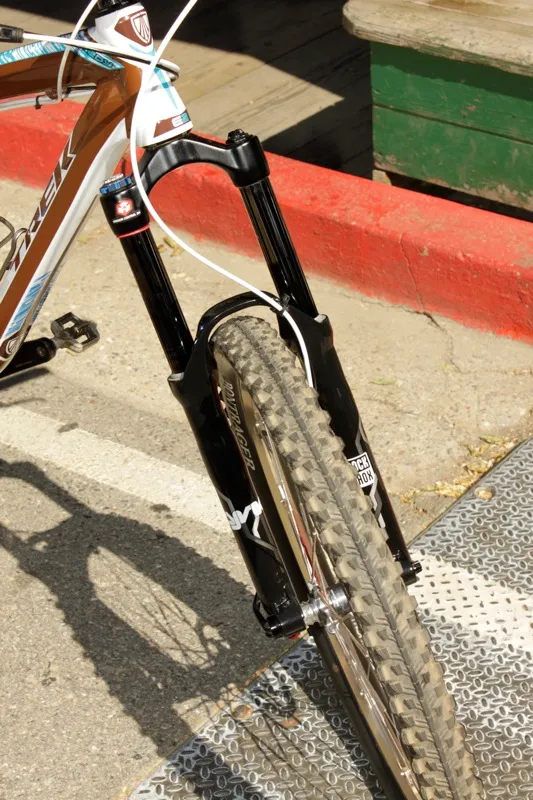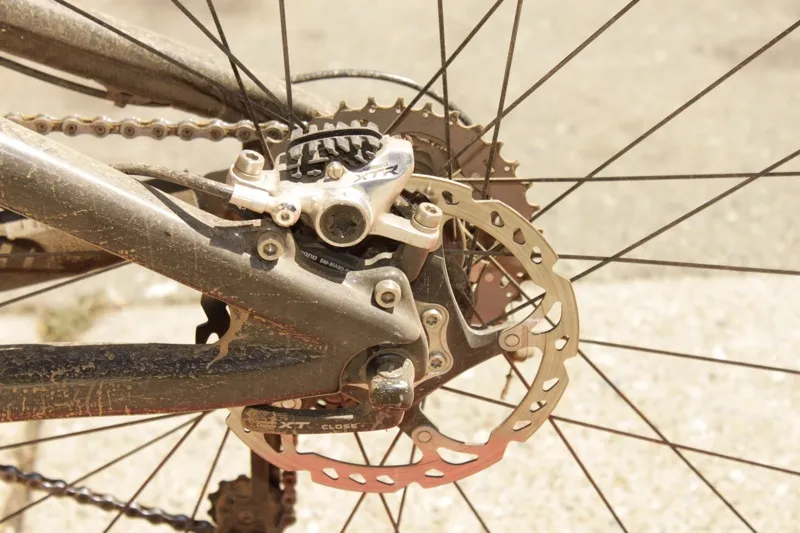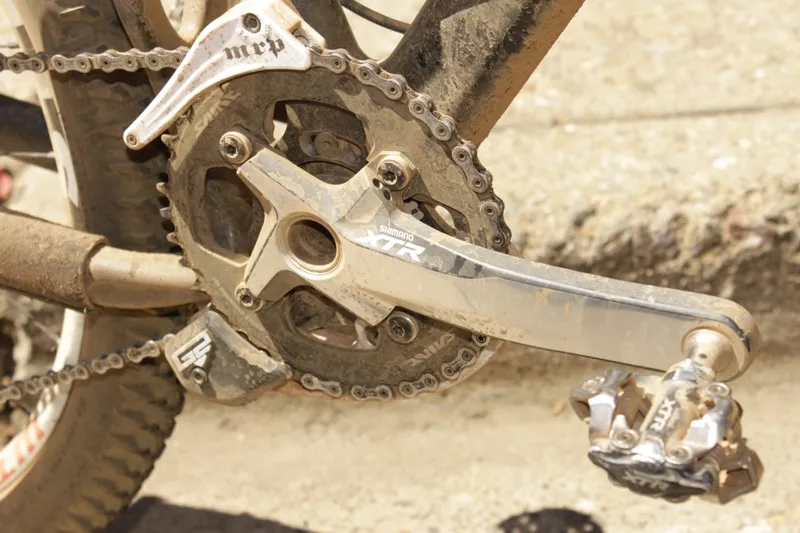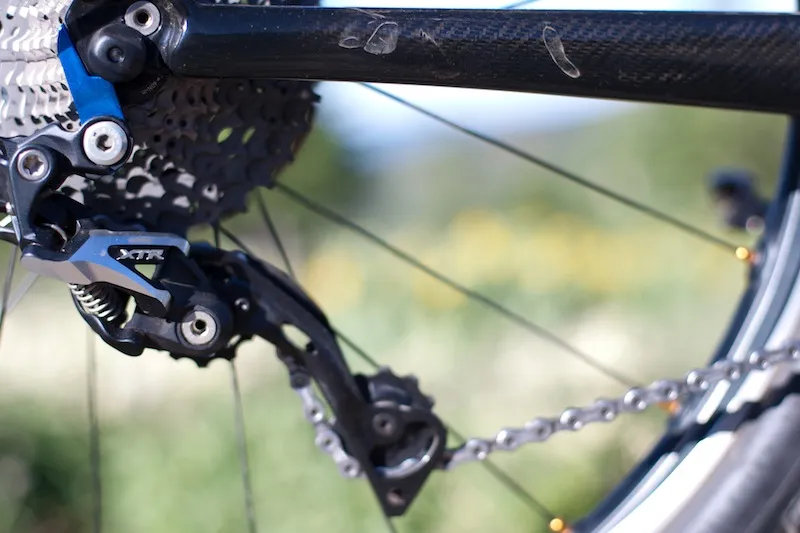Giro, RockShox and Shimano all used this past weekend’s Downieville Classic to offer sneak peeks of 2011 products. As the unofficial all-mountain world championships, it's the perfect place to launch and test kit that falls somewhere in between the formal confines of cross-country or downhill racing.
Highlights this year included Giro's new Xar (pronounced Czar) all-mountain helmet, RockShox's super-slick Lyrik fork stanchions and Shimano's latest XTR components.
Giro’s Xar all-mountain helmet
Most of Giro’s top all-mountain racers at the Downieville Classic sported the new metallic orange Xar helmet. This looks to be lighter and offer more venting than the current Xen model. It also sports a new, yet-to-be-launched Roc Loc 5 retention system, which uses a small dial that’s easily manipulated with one hand instead of the current two-button system.
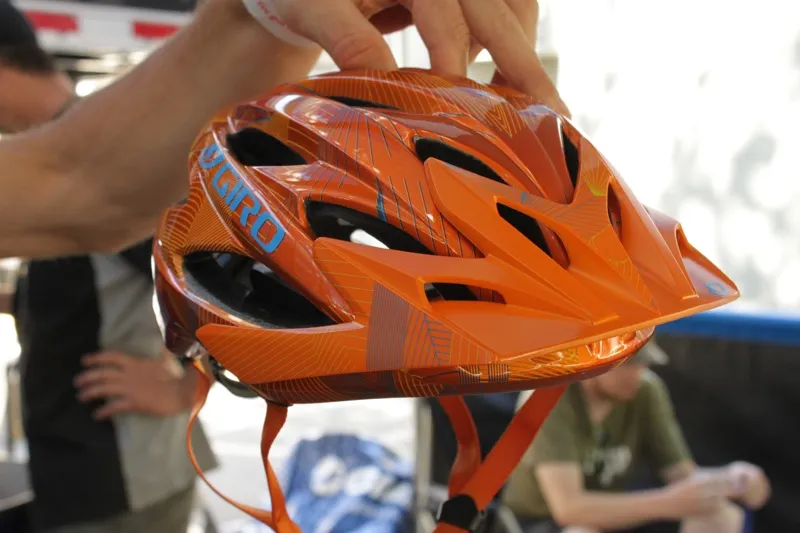
Giro's Xar is lighter and has bigger vents than the Xen, plus a new Roc Loc 5 retention system
Giro representatives offered no details concerning price, availability or technical specifications, and the rumor was that Giro rounded up the helmets after the event. We expect to hear more about the new lid during the autumn tradeshows.
For the full lowdown on the Giro Xar, check out issue 113 of What Mountain Bike magazine, on sale 25 August, which will contain an in-depth look at the R&D behind the new helmet.
Schnell’s BlackBox Lyrik
It may well be RockShox’s answer to Fox’s Kashima Coat fork stanchion coating – a slick mirrored black finish, which was spotted on Ross Schnell’s Lyrik fork at last weekend’s Downieville Classic.
While Schnell didn’t offer any details, pushing on his custom 160mm-travel Lyrik fork told a story. The Mission Control DH damped fork was noticeably more buttery than any previous version we’ve had a chance to ride or cycle.
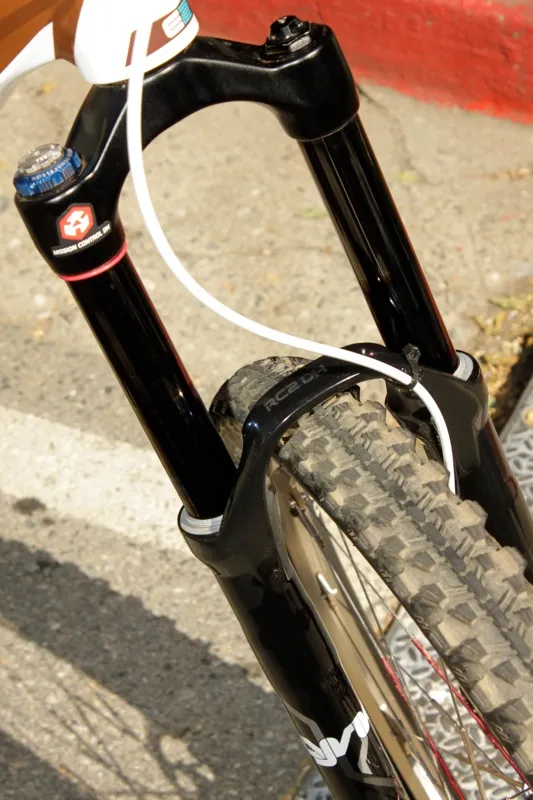
The BlackBox stanchions are very slick; pushing on the fork produced an ultra-buttery action
The mirrored black coating is said to be the same as that spotted on Steve Peat and other BlackBox downhill racers’ Boxxer World Cup forks. Like all BlackBox products, SRAM offer no word on when the technologies will find their way to production, though the sexiest (the World Cup carbon crown being the prime example) usually find their way to market if their benefit is great enough.
Schnell’s bike was also equipped with white brake lines. The coloured hydraulic lines are SRAM spec and sport XX fittings. Look for the colours to be a production option next year.
2011 Shimano XTR
While Shimano officially launched their 2011 M980 series XTR groups – XTR is broken down into Trail and Race models for next year – last month, Downieville proved the first chance for BikeRadar and the public to lay eyes on the new components.
Downhill race winner Mark Weir raved about both the XTR Trail brakes and the drivetrain. Previously, Weir and WTB-Santa Cruz team-mate Jason Moeschler skipped over Shimano’s M970 XTR brakes in favour of the Japanese company's Saint downhill binders with 6in (160mm) rotors.
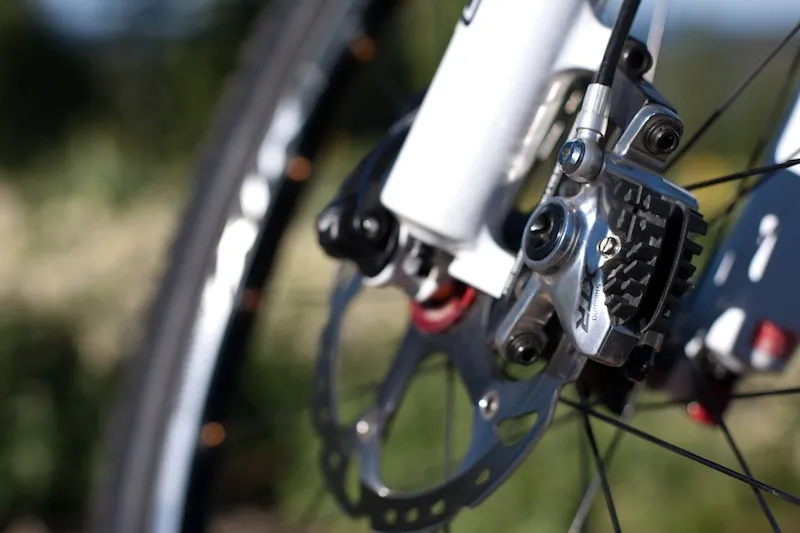
Shimano's M980 XTR Trail brake is said to be 125 percent more powerful than the current M970
“With a 180mm rotor the new brakes have the same power as Saint with a 160mm, but with way less weight,” said Weir. “The short lever really puts it in the wheel house. I’ve got shorter fingers and I’ve had no issues staying on them. I’ve had no pump with the brakes; no issues at all.”
Both of Shimano’s new XTR brakes, Trail and Race, share the same callipers, which are equipped with ceramic pistons. They differ by way of lever – the Race version offers only tooled reach adjust, while the Trail version offers tool-free reach adjustment and a Servo-Wave adjustment (mechanical advantage) – and brake pads. The Trail model comes with a Radiator pad, which is an aluminium backed metal pad with cooling fins. The Race brake comes with a more standard aluminium backed resin pad.
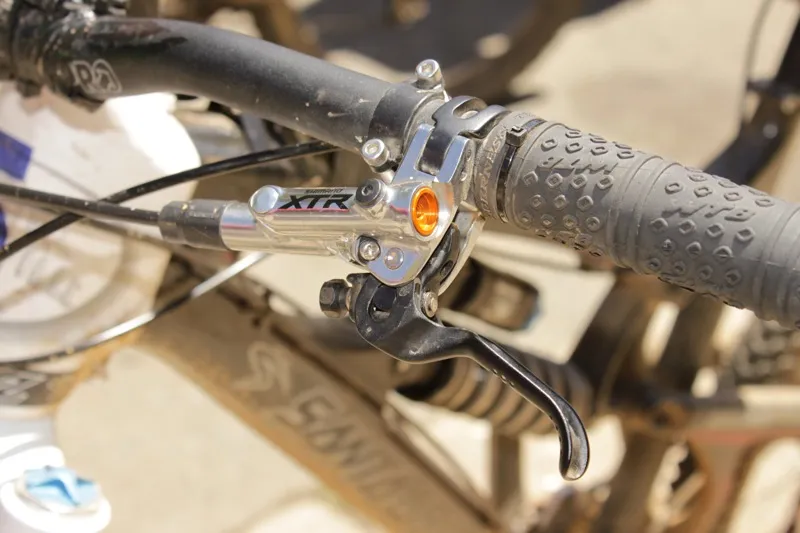
The XTR Trail brake lever has reach and Servo-Wave adjustments
Both versions use Shimano’s new Ice Tech hybrid aluminium rotor, constructed by pressing thin stainless steel skins onto each side of an aluminium rotor core. The steel skins bolster the rotor’s hardness and durability, while the central aluminium core is better at pulling heat away from the calliper than a standard rotor.
Shimano’s new brake design concentrates on heat management, so that less calliper material and fluid can be used to keep the weight down. Aluminium is prevalent in the new system because of its good conductivity and ability to ‘sink’ heat.
We've been offered a full test of the new XTR components next month, so stay tuned for a first ride review on BikeRadar in the near future.

